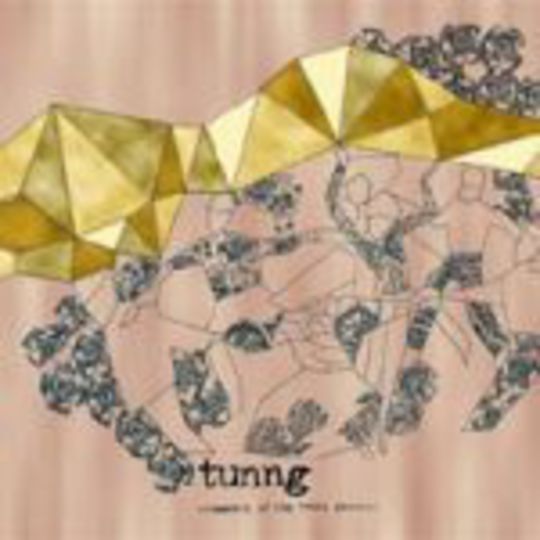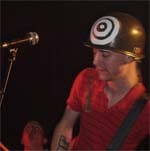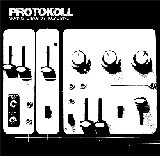Two of my favourite records this year, Adem's 'Love And Other Planets' and Final Fantasy's 'He Poos Clouds' were both able to count amongst their numerous virtues a definite sense of purpose and direction, based around their own seperate but equally worthy themes. Not to say that a record needs a theme mind you, or even direction, but it at least proves that the music a concept can frame has been carefully thought through, resulting in something, at the very least, thought-provoking. At times Tunng's sophomore album 'Comments of the Inner Chorus' struggles to provide itself with said direction, seemingly preferring inertia over the self-propulsion that drives the most interesting music ever forward.
Album opener 'Hanged' has a buzz and whir that recalls Pause-era Four Tet, nicely organic in a reflective, folky way; Tunng, as they proved on debut record 'Mother's Daughter', are more than adept at this kind of thing, moulding inoffensive electronica around gentle vocals and found sounds to produce something altogether very in keeping with folk's current _in_ status. Tunng aren't a sceney band, but there's always a danger for groups treading ground already well-worn and individually marked by others that their music won't quite deviate far enough from the trail to mark them out as anything other than just path-treaders, rather than explorers.
On 'Comments of the Inner Chorus' the group have moved away from the electronica that dominated their previous work towards a more conventional song-writing approach based around regular acoustic compositions and vocals. Sometimes this shift in focus works well, 'Woodcat' showcasing singer Sam Genders' voice at its best: placid and gentle, singing of something very Wicker Man - lovers, curses and people being turned into hares. However, Genders' voice simply isn't strong or flexible enough to carry the album alone, whilst the supporting musical cast sounds like a timid selection of folk and electronica that Tunng never quite manage to fuse into something new, or capable of rising above anything other than musical pleasantry.
There are charming moments on the album: 'Jenny Again' a heartfelt hymn to love, 'Sweet William' achieving a darkness that punctures the comfort that elsewhere permeates like rising damp every corner of the cozy country house 'Comments of the Inner Chorus' wants to be. However, there's something fundamentally unambitious about the record that means it never supersedes its peers; in a moment of horrible irony on 'The Wind Up Bird' a character in a found-sound declares, "The books have nothing to say!"; I, my journalistic reflex kicking in, picture the band and immediately think, 'No! They really do!' Indeed, for The Books found-sounds are the building blocks of an ethos and an individual musical language; for Tunng I can't help but feel they mask a wider inability to find their own, truly innovative voice.
-
6Sam Lewis's Score






















